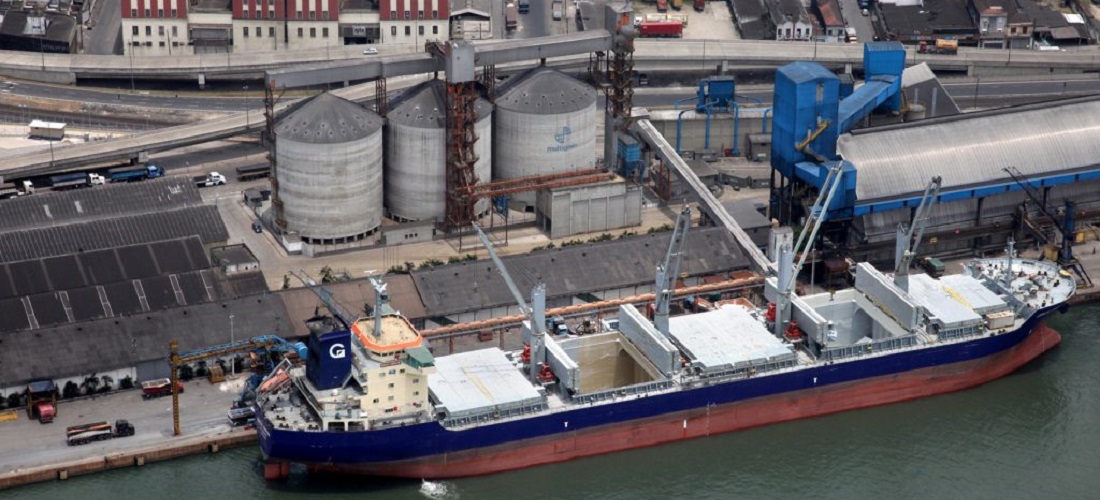
Codesp drafts new version of the Port of Santos Development and Zoning Plan
Sep, 20, 2019 Posted by Sylvia SchandertWeek 201939
Codesp (Santos Port Authority) has proposed a new rule for the Santos dock’s Development and Zoning Plan (DZP), which is currently being updated: that ships operating solid bulk will be able to dock in idle berths of public docks of the Port of Santos. The new rule was approved by the Ministry of Infrastructure.
The DZP is a port authority planning tool, setting strategies and goals for the development and optimization of the use of organized port areas and facilities.
The new norm is an old request from the port community. This is because, for more than a year, the lack of berths for docking solid bulk ships, including fertilizers, caused headaches, queues in Barra, and huge losses to users of the complex.
“The possibility of docking solid bulk ships on public docks is excellent news, which we have been waiting for a long time. This is a segment that cannot be idle. It is a recipe for the Port and for everyone who operates in the sector,” said José Roque, executive director of the São Paulo State Maritime Navigation Agencies Union (Sindamar).
According to Ordinance No. 4,058, published on Wednesday (09/18) by the Ministry of Infrastructure, in the Official Gazette, all new rules should be published on Codesp’s website and the folder itself.
Meanwhile, the port authority continues to draft its new DZP. According to the established schedule, the deadline for completion of the material is ten months from the publication of the Master Plan last April. With this, the new version of the plan may be known until February next year.
Source: A Tribuna
-
Ports and Terminals
Oct, 01, 2024
0
Minister eyes R$20bn to accelerate investments in ports, airports
-
Oil and Gas
Sep, 01, 2023
0
Bolivia announces depletion of natural gas reserves with end of exports in near-sight
-
Economy
Jan, 23, 2024
0
Brazil eyes increase in exporting companies after 2023 record figures
-
Grains
Jun, 28, 2021
0
Mercosur wheat supplies increase; flour prices should decline

